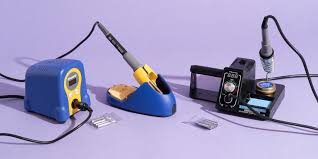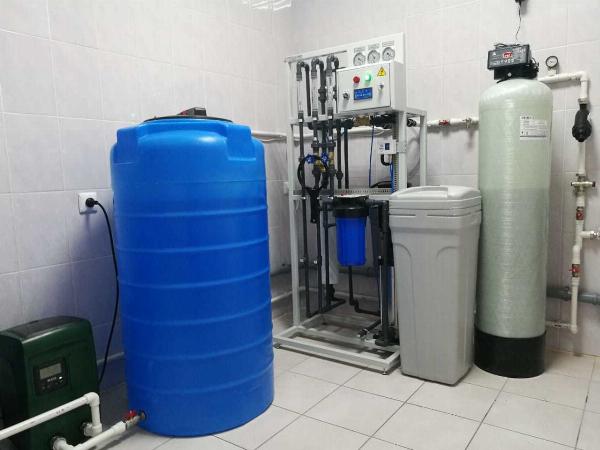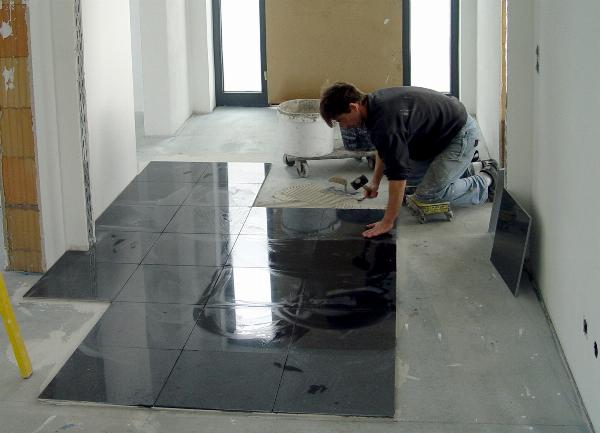Choosing the Right Soldering Station: A Comprehensive Guide:

Strong 8k brings an ultra-HD IPTV experience to your living room and your pocket.
When it comes to electronics work, having the right tools can make all the difference. A soldering station is a crucial piece of equipment for anyone involved in soldering tasks, from hobbyists to professionals. However, with a plethora of options available in the market, choosing the right soldering station can be overwhelming. In this comprehensive guide, we'll explore the factors to consider when selecting a soldering station to ensure you make an informed decision.
Understanding Soldering Stations:
Before delving into the selection process, it's essential to understand what a soldering station is and how it differs from a basic soldering iron. A soldering station consists of a power supply unit, temperature control, and a soldering iron holder. Unlike standalone soldering irons, soldering stations offer precise temperature control, adjustable settings, and ergonomic designs, making them ideal for various soldering applications.
Factors to Consider:
Quality and Reliability:
The quality and reliability of a soldering station are paramount. Look for reputable brands known for manufacturing durable and dependable soldering stations. Investing in a high-quality soldering station ensures longevity and consistent performance, saving you from frequent replacements and frustrations.
Temperature Control:
Temperature control is a critical feature to consider when choosing a soldering station. Opt for a soldering station with adjustable temperature settings to accommodate different soldering tasks and materials. Digital soldering stations offer precise temperature control, allowing you to solder with accuracy and efficiency.
Power Output:
The power output of a soldering station dictates its heating capabilities and performance. Higher-wattage soldering stations heat up faster and maintain temperature stability, making them suitable for demanding soldering projects. Consider your soldering requirements and choose a soldering station with an appropriate power output to meet your needs effectively.
Soldering Iron Compatibility:
Check whether the soldering station is compatible with a variety of soldering iron tips and accessories. Having interchangeable soldering iron tips allows you to adapt to different soldering tasks and work with various component sizes and types. Additionally, ensure that replacement parts and accessories are readily available for the soldering station model you choose.
Ergonomics and User-Friendliness:
Comfort and ease of use are essential considerations, especially for prolonged soldering sessions. Look for soldering stations with ergonomic designs, comfortable handles, and intuitive controls for seamless operation. A user-friendly soldering station enhances productivity and minimizes fatigue, making soldering tasks more enjoyable and efficient.
Safety Features:
Safety should always be a top priority when working with soldering equipment. Choose a soldering station equipped with safety features such as temperature lockout, overheating protection, and automatic shut-off mechanisms. These features help prevent accidents, protect the soldering station from damage, and ensure safe operation in various working environments.
Budget and Value for Money:
Consider your budget constraints and the value offered by different soldering station models. While it's tempting to opt for the cheapest option, investing in a quality soldering station with essential features can save you money in the long run by minimizing downtime, rework, and potential damage to electronic components.
Additional Features and Accessories:
Explore additional features and accessories offered by soldering stations, such as built-in soldering iron holders, temperature calibration options, and digital displays. While these features may not be essential, they can enhance convenience, efficiency, and overall user experience.
Final Thoughts:
Choosing the right soldering station is crucial for achieving professional-quality soldering results and ensuring a positive soldering experience. By considering factors such as quality, temperature control, power output, compatibility, ergonomics, safety features, budget, and additional features, you can select a soldering station that meets your specific needs and preferences.
Whether you're a hobbyist tinkering with electronics or a professional working on intricate soldering projects, investing in a reliable and versatile soldering station is an investment in your craft. With the guidance provided in this comprehensive guide, you can confidently navigate the vast array of soldering station options available and make an informed decision that aligns with your soldering goals and requirements.
Note: IndiBlogHub features both user-submitted and editorial content. We do not verify third-party contributions. Read our Disclaimer and Privacy Policyfor details.







